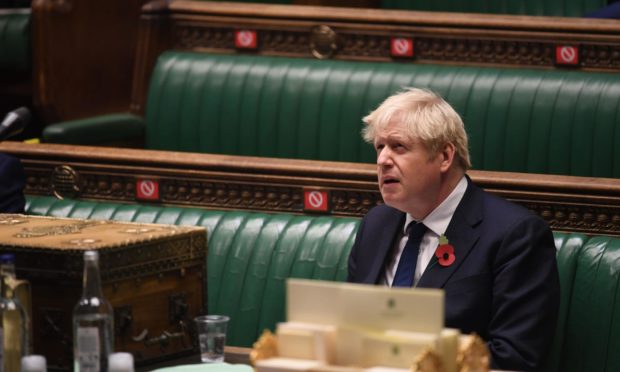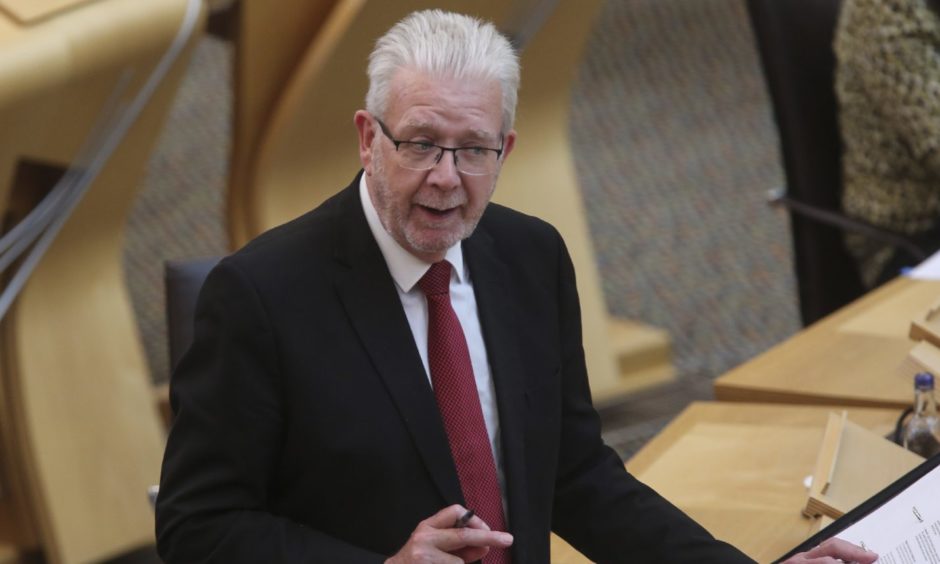Boris Johnson’s approach to Scotland has been likened to a Henry VIII military campaign, with accusations the prime minister is out to “destroy” the devolved settlement.
Constitution secretary Mike Russell told MPs the prime minister’s approach to devolution was akin to the Tudor monarch‘s Rough Wooing of Scotland in the 16th Century.
The comparison raised eyebrows on the Scottish Affairs committee, with one MP asking Mr Russell if he seriously believed debate between Holyrood and Westminster was comparable to “a war in the mid-16th Century in which people actually died”.
Mr Russell, asked about Mr Johnson’s approach, said: “I suppose I would take a historical perspective, I’d compare it to Henry VIII’s The Rough Wooing of Scotland. If this is a constructive approach it does seem to be very destructive.
“I think there is a limited understanding of devolution in Westminster, and also within the civil service and within officials and I think that there is a dislike of devolution.
“I think if you are strongly focused on Brexit, then you dislike anybody disagreeing with it, and you also dislike any idea that the power of Westminster can be constrained.”
‘Deeply disrespectful’
Tory MP Andrew Bowie, speaking after the hearing, said: “Mr Russell’s comments were deeply disrespectful to a serious committee.
“He knew exactly what he was saying and the effect intended.
“Bellicose baiting like this is below a government minister and highlighted the SNP’s lack of interest in working in partnership with the UK Government.”
The exchange came during the committee’s hearing on the UK Government’s controversial Internal Market Bill, which seeks to establish a common legal framework for goods and services across Britain following Brexit.
Mr Russell claimed the Bill would “diminish” the role of the Scottish Parliament.
“It is a Bill that undermines a substantial number of powers and it weakens the whole basis of devolution,” he said.
The minister pointed to areas such as health provision, education and building regulations and claimed standards could be lowered at the behest of UK ministers.
No love lost between Scots Tory leader Douglas Ross and Scottish Government minister Mike Russell, yikes.. pic.twitter.com/TxkfvCPNNf
— Dan O'Donoghue (@MrDanDonoghue) November 18, 2020
Bill would mean ‘certainty’ for businesses
Asked about such claims, Professor Michael Keating of Aberdeen University said the Bill could result in “a major constitutional change” as safeguards in the EU single market would not be transferred into the UK internal market.
He said: “In the EU, law is subject to proportionality, subsidiarity, the community method of making policy, qualified majority voting, the jurisdiction of the European Court of Justice, none of that is present here.”
Business minister Paul Scully argued the Bill was needed to give businesses “certainty” about future trading arrangements.
He said: “It’s a matter of consistency, it means you can you sell goods and services into another nation, another area covered by another devolved administration.


